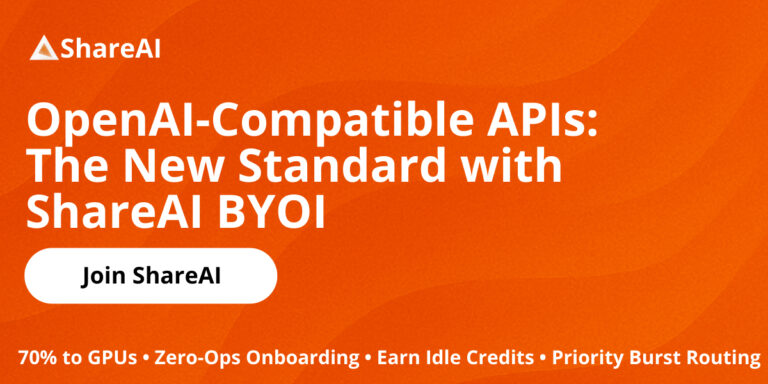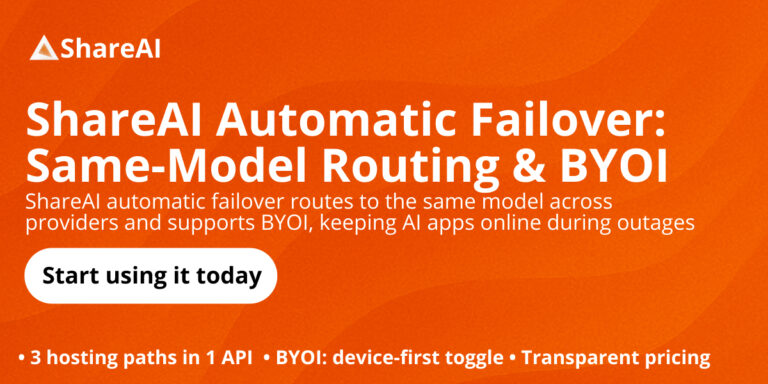Eden AI Alternatives 2026: ShareAI vs OpenRouter, Portkey, Kong AI, Unify, Orq & LiteLLM
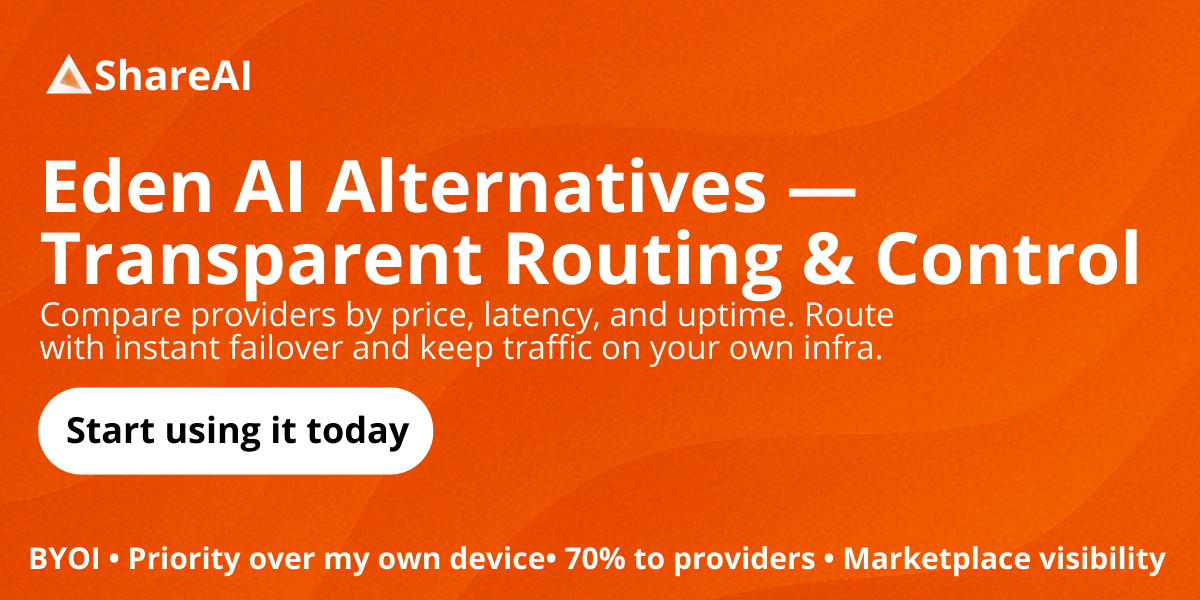
Eden AI Alternatives 2026: ShareAI vs OpenRouter, Portkey, Kong AI, Unify, Orq & LiteLLM
Updated February 2026
Developers like Eden AI because it offers a single API across many AI providers and modalities—LLMs plus image generation, OCR/document parsing, speech-to-text, and translation—along with helpful extras such as model comparison, cost & API monitoring, batch processing, caching, and multi-API-key management. Pricing is commitment-free, pay-as-you-go, and you can use a Sandbox token to return dummy responses while wiring up your app.
It isn’t the only route, though. If you care more about marketplace transparency (being able to pick providers by price, latency, uptime, availability before you route), strict gateway governance, or self-hosting, an Eden AI alternative may fit better. This guide maps the options like a builder would—so you can ship fast and keep TCO predictable.
- What Eden AI actually does (and where it may not fit)
- How to choose an Eden AI alternative
- Best Eden AI alternatives (quick picks)
- Deep dives: top alternatives
- Quickstart: call a model in minutes (ShareAI)
- Comparison at a glance
- FAQs
What Eden AI actually does (and where it may not fit)
What it is. Eden AI is a unified API over many providers and modalities. You can call chat/completions for LLMs, run computer vision and image generation, parse documents with OCR, convert speech to text, and translate—without stitching multiple vendor SDKs. A Model Comparison tool helps you test providers side-by-side. Cost Monitoring and API Monitoring track spend and usage. Batch Processing handles large workloads, and API Caching reduces repeat costs and latency. You can bring your own provider keys or buy credits through Eden. A Sandbox token returns safe dummy responses during integration.
How pricing works. Eden AI emphasizes no subscription overhead: you pay per request at provider rates, and you can optionally add credits that are consumed across services. Many teams start with Sandbox while wiring up requests, then swap to real keys or credits for production.
Where it may not fit. If you need (a) a transparent marketplace view of per-provider price, latency, uptime, and availability before every route, (b) gateway-level governance (policy at the network edge, deep traces, SIEM-friendly exports), or (c) a self-hosted path you fully operate, you may prefer a different tool class (marketplace-first aggregator, gateway, or open-source proxy). The alternatives below cover those strengths.
How to choose an Eden AI alternative
- Total cost of ownership (TCO). Don’t stop at $/1K tokens. Factor cache hit rates, retries/fallbacks, queueing, evaluator costs, and the operational overhead of observability.
- Latency & reliability. Favor region-aware routing, warm-cache reuse (stay on the same provider to reuse context), and precise fallback behavior (e.g., retry on 429s; escalate on timeouts).
- Observability & governance. If you need guardrails, audit logs, and policy enforcement at the edge, a gateway (e.g., Portkey or Kong AI Gateway) can be stronger than a pure aggregator.
- Self-host vs managed. Prefer Docker/K8s/Helm and OpenAI-compatible endpoints? LiteLLM is a common OSS choice; Kong AI Gateway is infrastructure you operate. Prefer hosted speed with marketplace-style transparency? See ShareAI, OpenRouter, or Unify.
- Breadth beyond chat. If the roadmap spans OCR, speech, and translation under one orchestrator, multi-modal coverage like Eden AI’s can simplify delivery.
- Future-proofing. Favor tools that make provider/model swaps painless (e.g., dynamic routing or universal APIs) so you can adopt newer, cheaper, or faster models without rewrites.
Best Eden AI alternatives (quick picks)
ShareAI (our pick for marketplace transparency + builder economics) — One API across 150+ models with instant failover and a marketplace that surfaces price/latency/uptime/availability before you route. Providers (community or company) earn 70% of revenue, aligning incentives with reliability. Explore: Browse Models • Read the Docs • Playground • Create API Key • Provider Guide
OpenRouter — Unified API over many models; provider routing and prompt caching optimize cost and throughput by reusing warm contexts where supported.
Portkey — AI Gateway with programmable fallbacks, rate-limit playbooks, and simple/semantic cache, plus traces/metrics. Great for policy-driven routing and SRE-style ops.
Kong AI Gateway — Governance at the edge with AI plugins, analytics, and policy; pairs well with aggregators if you need centralized control.
Unify — Data-driven router that optimizes for cost/speed/quality using live performance and a universal API.
Orq.ai — Collaboration + LLMOps (experiments, evaluators—incl. RAG), deployments, RBAC/VPC). Good when you need experimentation + governance.
LiteLLM — Open-source proxy/gateway with OpenAI-compatible endpoints, budgets/rate limits, logging/metrics, and retry/fallback routing—deployable via Docker/K8s/Helm.
Deep dives: top alternatives
ShareAI (People-Powered AI API)
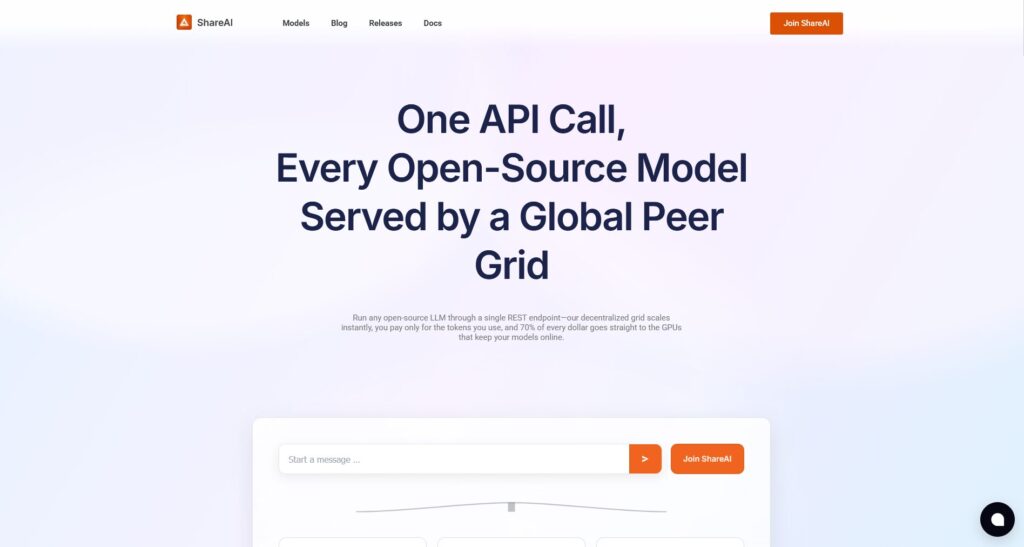
What it is. A provider-first AI network and unified API. Browse a large catalog of models/providers and route with instant failover. The marketplace surfaces price, latency, uptime, and availability up front. Economics send 70% of spend to GPU providers who keep models online.
Why teams choose it. Transparent marketplace to compare providers before you route, resilience-by-default via fast failover, and builder-aligned economics. Start fast in the Playground, create keys in the Console, and follow the API quickstart.
Provider facts (earn by keeping models online). Anyone can become a provider (Community or Company). Onboard via Windows/Ubuntu/macOS or Docker; contribute idle-time bursts or run always-on; choose incentives: Rewards (money), Exchange (tokens/AI Prosumer), or Mission (donate a % to NGOs). As you scale, set your own inference prices and gain preferential exposure. See the Provider Guide.
Ideal for. Product teams who want marketplace transparency, resilience, and builder-aligned economics, with a frictionless start and room to grow into provider mode.
OpenRouter
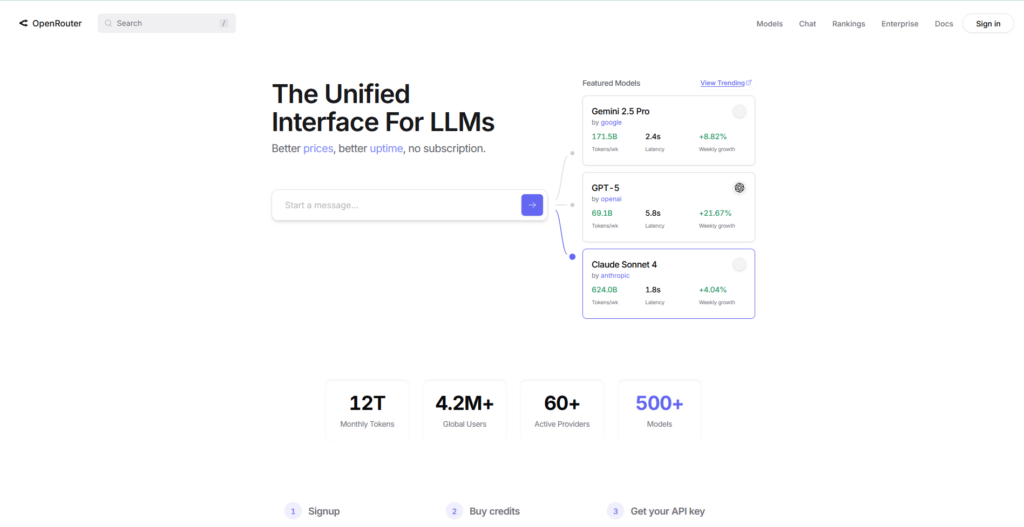
What it is. A unified API across many models with provider/model routing and prompt caching. The platform can keep requests on the same provider to reuse warm caches and fall back to the next best when a provider becomes unavailable.
Standout features. Price- and throughput-biased routing; cache reuse where supported.
Watch-outs. For deep gateway governance or SIEM pipelines, many teams pair OpenRouter with Portkey or Kong AI Gateway.
Portkey
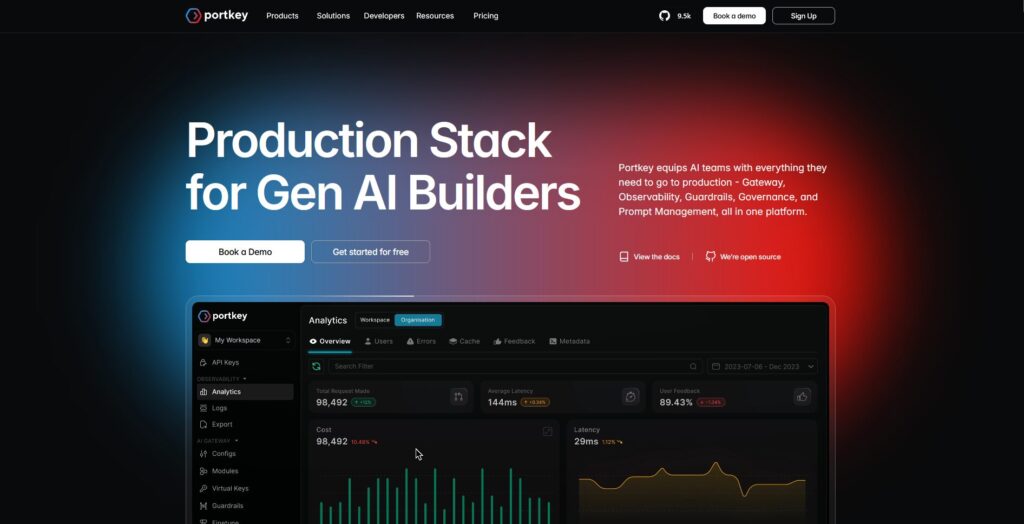
What it is. An AI operations platform + gateway with programmable fallbacks, rate-limit strategies, and simple/semantic cache, plus traces/metrics.
Standout features. Nested fallbacks and conditional routing; virtual keys and budgets; semantic caching tuned for short prompts and messages.
Watch-outs. More to configure and operate than a pure aggregator.
Kong AI Gateway
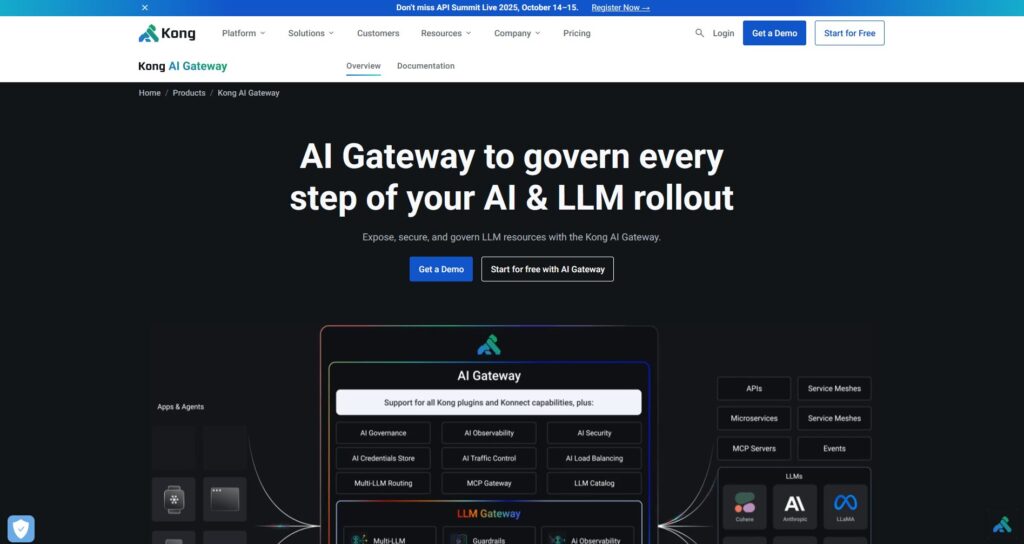
What it is. An edge gateway that adds AI plugins, governance, and analytics to the Kong ecosystem. It’s infrastructure—great when you need centralized policy and audit.
Standout features. AI proxy plugins, prompt engineering templates, and a cloud control plane via Konnect.
Watch-outs. Expect setup and maintenance; pair with an aggregator if you also want a marketplace view.
Unify
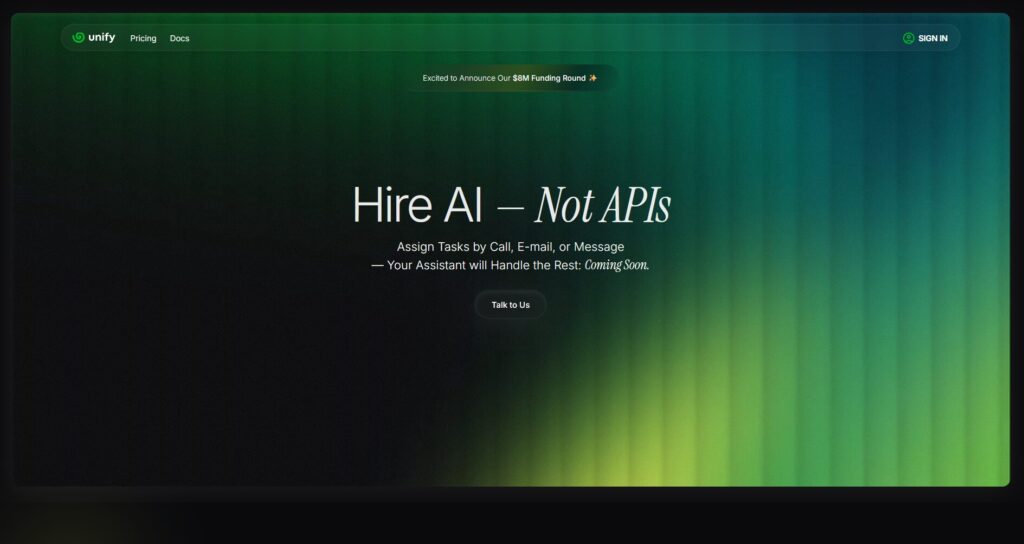
What it is. A universal API with data-driven routing to maximize cost/speed/quality using live metrics; strong emphasis on evaluation and benchmarks.
Standout features. Dynamic routing and fallbacks; benchmark-guided selection that updates by region and workload.
Watch-outs. Opinionated defaults—validate with your own prompts.
Orq.ai
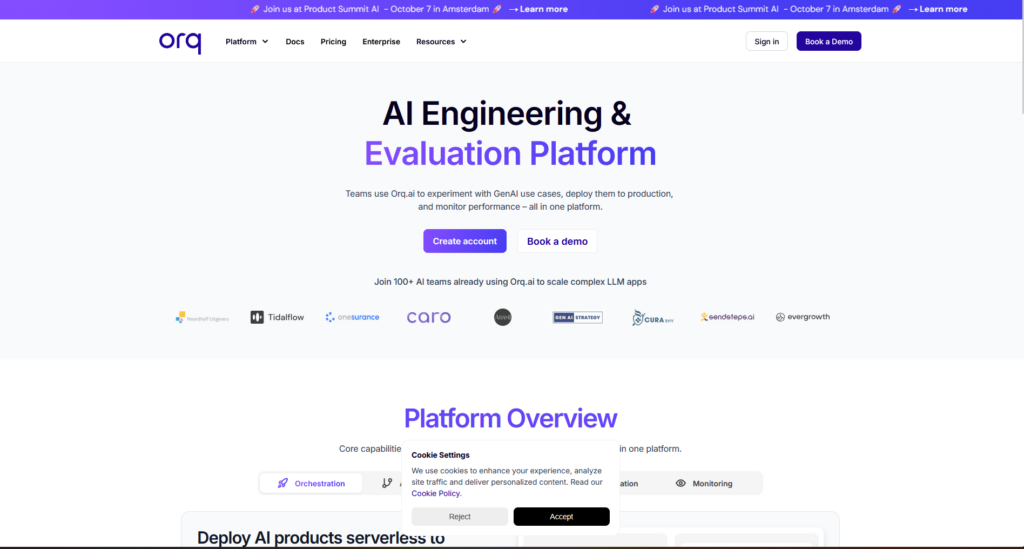
What it is. A generative AI collaboration platform: experiments, evaluators (including RAG), deployments, RBAC/VPC.
Standout features. Evaluator library with RAG metrics (context relevance, faithfulness, recall, robustness).
Watch-outs. Broader surface than a minimal “single-endpoint” router.
LiteLLM
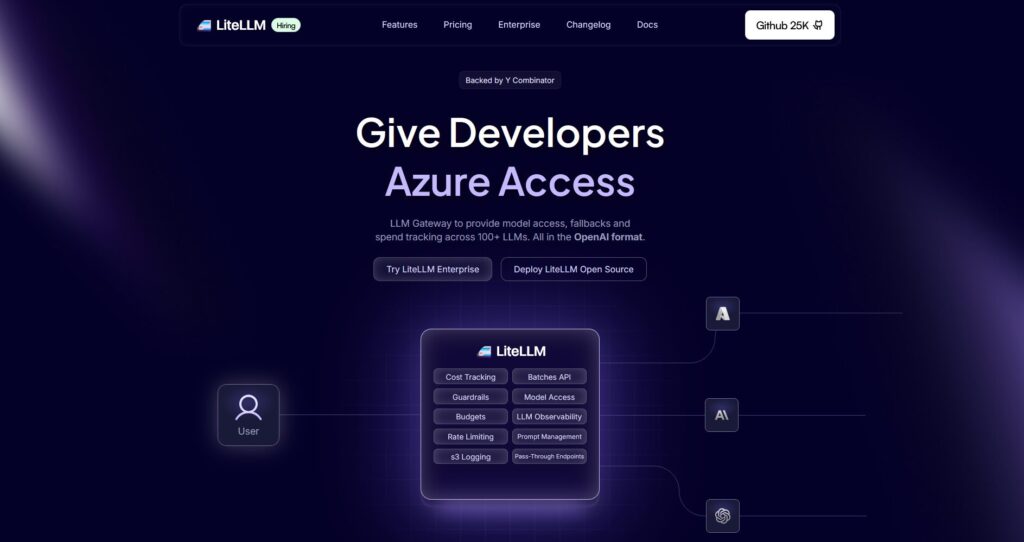
What it is. An open-source proxy/gateway with OpenAI-compatible endpoints, budgets/rate limits, logging/metrics, and retry/fallback routing. Self-host via Docker/K8s/Helm.
Standout features. Budgets & rate limits per project/API key/team; Admin UI and spend tracking.
Watch-outs. You own operations and upgrades (typical for OSS).
Quickstart: call a model in minutes (ShareAI)
Start in the Playground, then grab an API key and ship. Reference: API quickstart • Docs Home • Releases.
#!/usr/bin/env bash
# ShareAI — Chat Completions (cURL)
# Usage:
# export SHAREAI_API_KEY="YOUR_KEY"
# ./chat.sh
curl -X POST "https://api.shareai.now/v1/chat/completions" \
-H "Authorization: Bearer $SHAREAI_API_KEY" \
-H "Content-Type: application/json" \
-d '{
"model": "llama-3.1-70b",
"messages": [
{ "role": "user", "content": "Summarize Eden AI alternatives in one sentence." }
],
"temperature": 0.3,
"max_tokens": 120
}'
// ShareAI — Chat Completions (JavaScript, Node 18+)
// Usage:
// SHAREAI_API_KEY="YOUR_KEY" node chat.js
const API_URL = "https://api.shareai.now/v1/chat/completions";
const API_KEY = process.env.SHAREAI_API_KEY;
async function main() {
if (!API_KEY) {
throw new Error("Missing SHAREAI_API_KEY in environment");
}
const res = await fetch(API_URL, {
method: "POST",
headers: {
"Authorization": `Bearer ${API_KEY}`,
"Content-Type": "application/json"
},
body: JSON.stringify({
model: "llama-3.1-70b",
messages: [
{ role: "user", content: "Summarize Eden AI alternatives in one sentence." }
],
temperature: 0.3,
max_tokens: 120
})
});
if (!res.ok) {
const text = await res.text();
throw new Error(`HTTP ${res.status}: ${text}`);
}
const data = await res.json();
console.log(data.choices?.[0]?.message ?? data);
}
main().catch(err => {
console.error("Request failed:", err);
process.exit(1);
});
Comparison at a glance
| Platform | Hosted / Self-host | Routing & Fallbacks | Observability | Breadth (LLM + beyond) | Governance/Policy | Notes |
|---|---|---|---|---|---|---|
| Eden AI | Hosted | Switch providers; batch; caching | API & cost monitoring | LLM, OCR, vision, speech, translation | Central billing/key mgmt | BYO keys or credits; Sandbox token; unified OpenAI-style chat endpoint. |
| ShareAI | Hosted + provider network | Instant failover; marketplace-guided routing | Usage logs; marketplace stats | Broad model catalog | Provider controls | 70% revenue to providers; “People-Powered” marketplace. |
| OpenRouter | Hosted | Provider/model routing; prompt caching | Request-level info | LLM-centric | Provider-level policies | Cache reuse where supported; fallback on unavailability. |
| Portkey | Hosted & Gateway | Policy fallbacks; rate-limit playbooks; simple/semantic cache | Traces/metrics | LLM-first | Gateway configs | Great for SRE-style control and guardrails. |
| Kong AI Gateway | Self-host/Enterprise | Upstream routing via AI plugins | Metrics/audit via Kong | LLM-first | Strong edge governance | Infra component; pairs with aggregators. |
| Unify | Hosted | Data-driven router by cost/speed/quality | Benchmark explorer | LLM-centric | Router preferences | Benchmark-guided choices. |
| Orq.ai | Hosted | Retries/fallbacks in orchestration | Platform analytics; RAG evaluators | LLM + RAG + evals | RBAC/VPC options | Collaboration & experimentation. |
| LiteLLM | Self-host/OSS | Retry/fallback; budgets/limits | Logging/metrics; admin UI | LLM-centric | Full infra control | OpenAI-compatible endpoints. |
FAQs
What is Eden AI? (“Eden AI explained”)
Eden AI aggregates multiple AI providers behind a unified API—covering LLM chat plus vision/OCR, speech, and translation—and adds tools like model comparison, cost/API monitoring, batch processing, and caching.
Is Eden AI free? Do I need a subscription? (“Eden AI pricing / free tier”)
Eden AI uses pay-as-you-go pricing. There’s no subscription requirement, and you can bring your own provider keys or purchase credits. For development, the Sandbox token returns dummy responses so you can integrate without incurring charges.
Does Eden AI support BYOK/BYOA?
Yes. You can bring your own vendor accounts/keys for supported providers and be billed directly by them, or pay via Eden credits.
Does Eden AI have batch processing, caching, and monitoring?
Yes—Batch Processing for large jobs, API Caching for repeated requests, and Cost/API Monitoring to keep usage and spend under control are key parts of the platform.
Eden AI vs ShareAI: which is better?
Pick ShareAI if you want a transparent marketplace that surfaces price/latency/uptime/availability before you route, instant failover, and builder-aligned economics (70% to providers). Pick Eden AI if your roadmap needs broad multimodal coverage (OCR, speech, translation) under one API with batch/caching/monitoring.
Eden AI vs OpenRouter: what’s the difference?
OpenRouter focuses on LLMs with provider routing and prompt caching, while Eden AI spans multi-modal tasks beyond chat with model comparison, batch, caching, and monitoring. Many teams pair a router with a gateway for governance—or choose ShareAI to get marketplace transparency and resilient routing in one place.
Eden AI vs Portkey vs Kong AI: router or gateway?
Portkey and Kong AI Gateway are gateways—great for policy/guardrails (fallbacks, rate limits, analytics, edge governance). Eden AI is an aggregator/orchestrator for multiple AI services. Some stacks use both: a gateway for org-wide policy and an aggregator for marketplace-style routing.
Eden AI vs LiteLLM: hosted vs self-hosted?
Eden AI is hosted. LiteLLM is an open-source proxy/gateway you deploy yourself with budgets/limits and an OpenAI-compatible surface. Choose based on whether you want managed convenience or full infra control.
What’s a good Eden AI alternative for strict governance and VPC isolation?
Consider Kong AI Gateway if you need enterprise-grade, self-hosted governance at the network edge. You can also pair a gateway (policy/observability) with a marketplace-style router for model choice and cost control.
What’s the best Eden AI alternative if I want to self-host?
LiteLLM is a popular open-source proxy with OpenAI-compatible endpoints, budgets, rate limits, and logging. If you already run Kong, Kong AI Gateway puts AI policy into your existing edge.
Which is cheapest for my workload: Eden AI, ShareAI, OpenRouter, or LiteLLM?
It depends on model choice, region, cacheability, and traffic patterns. Aggregators like ShareAI and OpenRouter can cut costs via routing and caching; gateways like Portkey add semantic cache and rate-limit playbooks; LiteLLM reduces platform overhead if you’re comfortable operating your own proxy. Benchmark with your prompts and track effective cost per result—not just token price.
How do I migrate from Eden AI to ShareAI with minimal code changes?
Map your models to ShareAI equivalents, mirror request/response shapes, and start behind a feature flag. Route a small percentage of traffic first, compare latency/cost/quality, then ramp. If you also run a gateway, ensure caching/fallbacks don’t double-trigger between layers.
Why ShareAI often wins as an “Eden AI alternative”
If your priority is picking the right provider before you route—factoring price, latency, uptime, and availability—ShareAI’s marketplace view is hard to beat. It pairs transparent selection with instant failover, then aligns incentives by returning 70% of spend to providers who keep models online. For platform teams, this combination reduces surprises, steadies SLAs, and lets you earn as a provider when your GPUs are idle (Rewards, Exchange tokens, or Mission donations).
Next steps: Browse Models • Open Playground • Create your API key • Sign in or Sign up.
